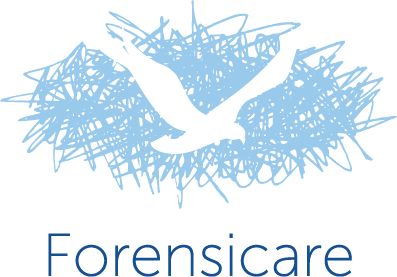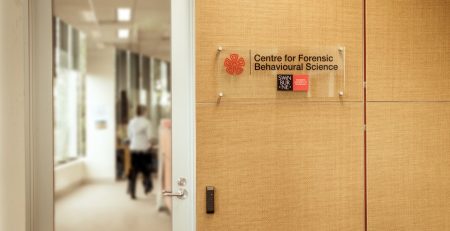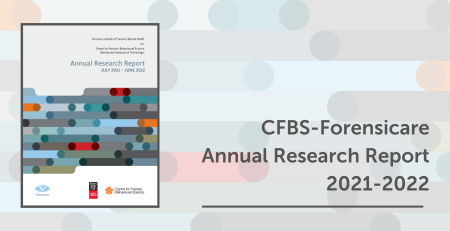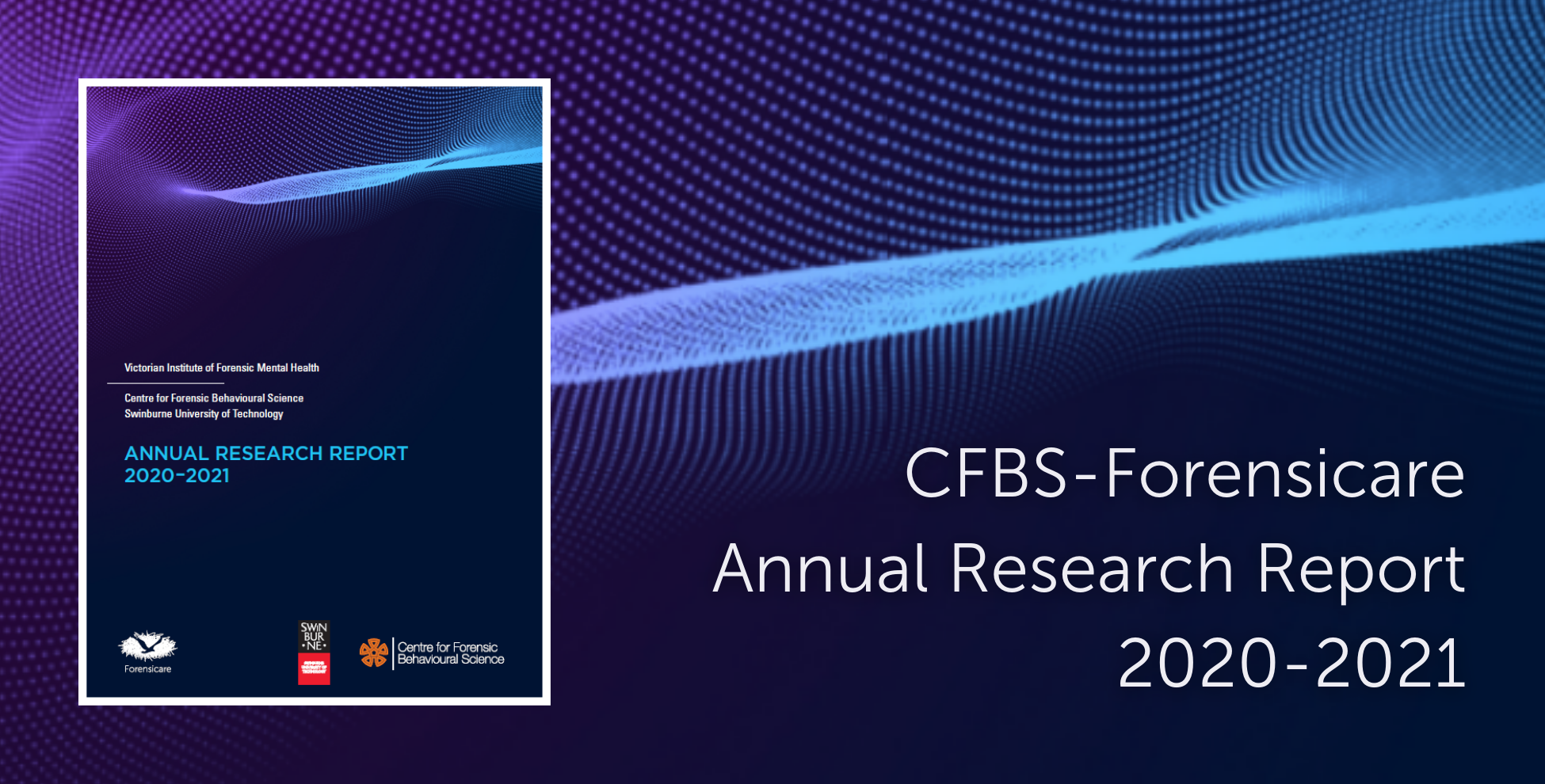Introducing eDASA+APP: A new instrument for predicting aggression and reducing restrictive interventions.
National Science Week
National Science Week is Australia’s annual celebration of science and technology. Running each year in August, it is an opportunity to share new discoveries and be fascinated by the wondrous world we live in.
Fun fact: did you know that under the Mental Health Act 2014, Forensicare is required to conduct research into forensic behavioural science? It’s so that we can promote continuous improvement and innovation in mental health care.
So within Forensicare there is an exciting nexus between science and practice – with each informing the other. That’s why we’re celebrating National Science Week by bringing you with this three-part series about the latest science led by the Centre for Forensic Behavioural Science (CFBS). The CFBS is operated by Swinburne University of Technology in partnership with Forensicare.
Reducing violence and aggression
Countless scientific research starts with an issue and a theory about to address it.
Violence and aggression are a significant concern in mental health units across the country, not only for staff but also for consumers, families and carers.
In forensic mental health settings, studies show that between 60-92% of consumers engage in aggression, leading to harm for both staff and consumers and detrimental impacts on care.
To try and prevent aggression and violence, we conduct risk assessments. These can accurately predict aggression, don’t reduce aggression or the use of restrictive interventions.
New research has looked at how we can connect risk assessments with preventions activities and in doing so, we found that we can successfully reduce aggression and violence and the use of restrictive interventions.
The Dynamic Appraisal of Situational Aggression (aka the DASA)
For those of you who are unfamiliar with this instrument, the DASA is an assessment tool to measure the risk of a consumer engaging in aggression or violence.
It looks at seven risk factors; irritability, impulsivity, unwillingness to follow directions, sensitive to provocation, easily angered when requests are denied, negative attitudes and verbal threats.
To use it, a clinician will assess each risk factor and score it from 0 (absent) to 1 (present). The total score has a corresponding risk rating of low (0), medium (1-3) or high (4-7) of expressing aggression in the next 24 hours.
This instrument – originally developed by Professor Michael Daffern and Professor James Ogloff at Forensicare and the Centre for Forensic Behavioural Science in 2006 – is a reliable way of predicting aggression. It is now used in health care settings internationally. While it has been good at predicting aggression, it does not lead to a reduction of aggressive behaviour. Recent research led by Dr Tessa Maguire has looked at how to integrate risk assessments with prevention strategies to achieve that long-sought reduction in aggression.
A new study
Dr Maguire’s study aimed to examine the suitability of using the eDASA (now an online risk assessment instrument! Fancy.) in conjunction with an Aggression Prevention Protocol (APP). The APP offers recommendations for aggression prevention strategies or nursing interventions that correspond to the low, medium or high risk level (as measured using the eDASA). The APP also prioritises the use of the least restrictive interventions. She wanted to understand whether using these instruments together – as the eDASA+APP – could successfully reduce aggression and violence in our workplace.
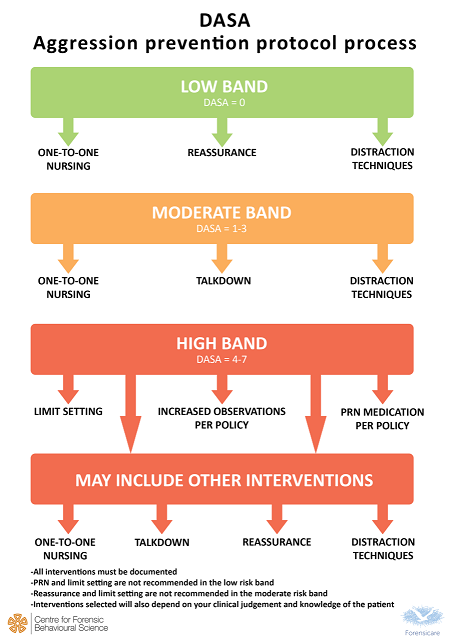
Most health research around the world – including that on aggression and violence – shows a bias towards men. Importantly, this study sought to understand whether these instruments are also appropriate for women.
The study was conducted on the female acute unit at Thomas Embling Hospital, where according to hospital policy all patients on the acute units are assessed daily using the DASA. Staff were given training on how to use the eDASA+APP. Phase one (the control phrase) looked at the use of the eDASA, while phase two (the experimental phase) looked at the use of the eDASA and APP together.
So what were the findings?
The study found the eDASA+APP assisted staff to manage aggression and violence by prompting appropriate prevention strategies and nursing interventions according to the level of risk.
Some of the key findings include:
- Staff prioritised the use of the least restrictive interventions.
- An increase in the use of early invention nursing techniques such as distraction techniques, one-to-one nursing and reassurance.
- A reduction in the use of seclusion as well as other restrictive interventions such as physical and mechanical restraint and Pro Re Nata (PRN) medication.
- A decrease in incidents of verbal aggression, however, there was no change in other types of aggression.
It is also worth noting that the reduction in the use of restrictive interventions did not result in an increase in aggressive or violent behaviour.
Where to next?
Dr Maguire and the team will now further refine the eDASA+APP and the training to improve their effectiveness and useability for staff. Future research will include larger samples of consumers in both forensic mental health and mainstream mental health services and involve consumers and people with lived experience to refine and enhance the interventions.
Congratulations to Dr Maguire and the team! We hope that the development of the eDASA+APP continues to see a reduction in aggressive and violent behaviour and the eventual elimination of the use of seclusion in our workplace.
